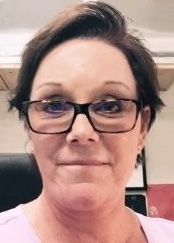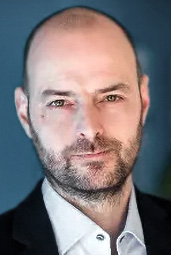

 When I began writing about the dot-org sale, it was out of concern for the loss of what I felt strongly was long understood to be a unique place in the Internet's landscape. Like a national park, dot-org deserved special protection. It turns out lots of people and organizations agreed. On April 30th, 2020, The ICANN Board upheld these values. They unanimously withheld consent for a change of control of the Public Interest Registry to a private equity firm.
When I began writing about the dot-org sale, it was out of concern for the loss of what I felt strongly was long understood to be a unique place in the Internet's landscape. Like a national park, dot-org deserved special protection. It turns out lots of people and organizations agreed. On April 30th, 2020, The ICANN Board upheld these values. They unanimously withheld consent for a change of control of the Public Interest Registry to a private equity firm.
 The most incredible thing about the dot-org sale is no longer the billion-dollar price tag. It's not surprise fait-accompli announcement. It's not the republican billionaires. It's that the proponents have continued to advocate for it in the midst of the worst crisis the world has faced since the second world war. The biggest crisis in almost a hundred years. One that will reverberate for generations.
The most incredible thing about the dot-org sale is no longer the billion-dollar price tag. It's not surprise fait-accompli announcement. It's not the republican billionaires. It's that the proponents have continued to advocate for it in the midst of the worst crisis the world has faced since the second world war. The biggest crisis in almost a hundred years. One that will reverberate for generations.
 This week, the ICANN Board will vote on whether to approve the transfer of control of the .ORG domain to a private equity firm called Ethos Capital. This is a weighty decision for ICANN, since in order to approve the sale, it will have to convince itself that this is the right choice in the face of tremendous and widespread opposition, including from those who will be most affected by the sale.
This week, the ICANN Board will vote on whether to approve the transfer of control of the .ORG domain to a private equity firm called Ethos Capital. This is a weighty decision for ICANN, since in order to approve the sale, it will have to convince itself that this is the right choice in the face of tremendous and widespread opposition, including from those who will be most affected by the sale.
 Later this week, ICANN is finally going to vote on the proposed sale of .ORG to Ethos Capital. It will decide the future owner of .ORG, but the decision will also provide a window into whether ICANN will remain independent of the U.S. government. It's a big decision, one that can strengthen both ICANN and the NGO community on the web, if we get it right. For nearly a decade, the ICANN community fought hard to untether itself from the U.S. Department of Commerce.
Later this week, ICANN is finally going to vote on the proposed sale of .ORG to Ethos Capital. It will decide the future owner of .ORG, but the decision will also provide a window into whether ICANN will remain independent of the U.S. government. It's a big decision, one that can strengthen both ICANN and the NGO community on the web, if we get it right. For nearly a decade, the ICANN community fought hard to untether itself from the U.S. Department of Commerce.
 In a move, unprecedented in scale, ISOC moved to sell PIR, the registry for .ORG, to a for-profit entity which intends, in turn, to convert PIR into a for-profit entity itself. This move has, understandably, raised concerns from around the Internet community and cast a bright light on ICANN, the nature of its contracts with Registries and the responsibilities of the ICANN Board... As the Vice Chair for Policy of the At-Large Advisory Committee (ALAC), I've tried to navigate a consensus involving ALL of those parties because of our diverse membership.
In a move, unprecedented in scale, ISOC moved to sell PIR, the registry for .ORG, to a for-profit entity which intends, in turn, to convert PIR into a for-profit entity itself. This move has, understandably, raised concerns from around the Internet community and cast a bright light on ICANN, the nature of its contracts with Registries and the responsibilities of the ICANN Board... As the Vice Chair for Policy of the At-Large Advisory Committee (ALAC), I've tried to navigate a consensus involving ALL of those parties because of our diverse membership.
 The .ORG domain is at a crossroads: What will it be? A simple registry offering domain names for organizations, individuals and others? Or something bigger, as Ethos Capital and the Public Internet Registry propose? Will proposed changes make .ORG better? Or worse? There are valid points on both sides, but as an Internet safety advocate who for two decades has worked to teach children how to be safe online, stop the next young girl from being sex trafficked, and...
The .ORG domain is at a crossroads: What will it be? A simple registry offering domain names for organizations, individuals and others? Or something bigger, as Ethos Capital and the Public Internet Registry propose? Will proposed changes make .ORG better? Or worse? There are valid points on both sides, but as an Internet safety advocate who for two decades has worked to teach children how to be safe online, stop the next young girl from being sex trafficked, and...
 As the first quarter of 2020 ended, the number of new generic Top-Level Domain (gTLD) domain registrations reached approximately 33.2 million. We expect to see additional growth through 2020 as TLDs such as .GAY will complete their launches before the end of the year. Meetings and conferences in the domain industry in 2020 are in flux but will go on in new formats, new timeframes and new locations.
As the first quarter of 2020 ended, the number of new generic Top-Level Domain (gTLD) domain registrations reached approximately 33.2 million. We expect to see additional growth through 2020 as TLDs such as .GAY will complete their launches before the end of the year. Meetings and conferences in the domain industry in 2020 are in flux but will go on in new formats, new timeframes and new locations.
 In recent weeks we've seen a range of press articles, security blogposts and public statements addressing real or perceived issues with network capacity and the domain name system (DNS) in particular. These range from concerns about the resilience of the DNS with questions on the impact of the number of registrations to news indicating that a tidal wave of fraud and abuse is hitting the world.
In recent weeks we've seen a range of press articles, security blogposts and public statements addressing real or perceived issues with network capacity and the domain name system (DNS) in particular. These range from concerns about the resilience of the DNS with questions on the impact of the number of registrations to news indicating that a tidal wave of fraud and abuse is hitting the world.
 ICANN's dismissal of public comments submitted on the .COM Registry Amendment wasn't surprising given that it recently dismissed the public comments on the .Org Renewal Agreement, but the speed and disdain which it demonstrated was. Despite public pronouncements by ICANN President and CEO, Gören Marby and assurances from ICANN Board Chair, Maarten Botterman, that public comments were welcomed and that ICANN would take them seriously...
ICANN's dismissal of public comments submitted on the .COM Registry Amendment wasn't surprising given that it recently dismissed the public comments on the .Org Renewal Agreement, but the speed and disdain which it demonstrated was. Despite public pronouncements by ICANN President and CEO, Gören Marby and assurances from ICANN Board Chair, Maarten Botterman, that public comments were welcomed and that ICANN would take them seriously...
 Ethos CEO Erik Brooks and I are grateful to ICANN for hosting this important community dialogue on the future of PIR and .ORG earlier this week, and we listened intently to the questions posed. To echo what John Jeffrey said in his opening remarks, we are very interested in the community's input. We appreciate the openness and candor that was expressed during the Public Forum, and we would like to take this opportunity to recap a few of the overarching themes and questions asked.
Ethos CEO Erik Brooks and I are grateful to ICANN for hosting this important community dialogue on the future of PIR and .ORG earlier this week, and we listened intently to the questions posed. To echo what John Jeffrey said in his opening remarks, we are very interested in the community's input. We appreciate the openness and candor that was expressed during the Public Forum, and we would like to take this opportunity to recap a few of the overarching themes and questions asked.